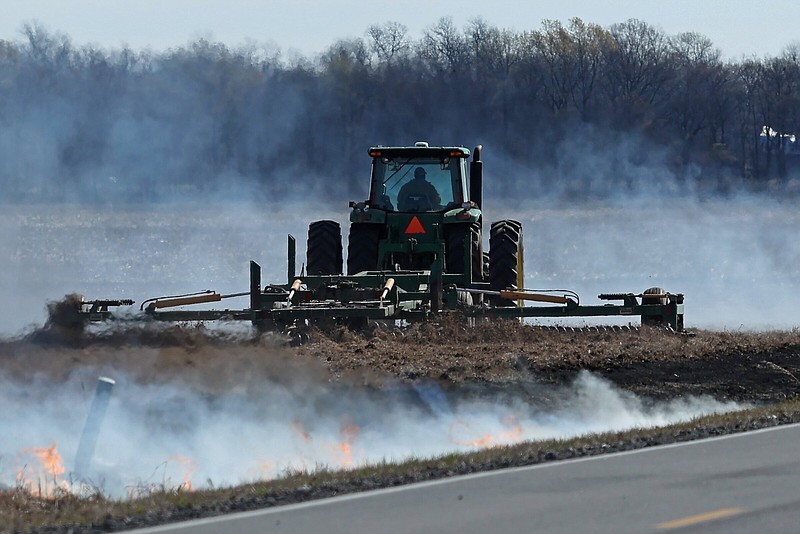WASHINGTON -- Agriculture leaders -- including one Arkansan -- urged members of the U.S. Senate on Tuesday to address shortcomings in federal farm safety net programs as lawmakers prepare to draft a new Farm Bill.
Members of the Senate Agriculture, Nutrition and Forestry Committee on Tuesday held the first of two hearings this week regarding commodity programs, risk management and credit access. The committee's related subcommittee will hold the second hearing on Thursday with crop insurance and credit representatives.
Producers representing multiple industries discussed preferred changes to risk protection and income support efforts for this year's upcoming farm bill. Senators and House of Representatives members have been receiving feedback on the current law -- which covers programs on nutrition, rural development, conservation and federal investment -- to prepare new legislation and replace the statute enacted in December 2018.
Sen. John Boozman, R-Ark., spent time last month meeting with agriculture leaders and producers in Iowa, Minnesota and Kansas; all three states have senators on the Senate committee.
"Today, too many producers are struggling to cover their operating costs, and this is especially true for small and medium-sized farms," Minnesota Democratic Sen. Tina Smith, the subcommittee's chair, said Tuesday.
"The high level of concentration in the ag sector combined with supply chain disruptions has driven up input costs, which are now outpacing commodity prices and putting farmers -- especially small farmers -- in a real bind."
Rich Hillman of Carlisle was among Tuesday's panelists.
Hillman, president of the Arkansas Farm Bureau, participated in the hearing as a representative of USA Rice, which represents rice farmers and millers. Other panelists included representatives of crop-centered associations such as the National Cotton Council and the American Soybean Association.
"I think all sectors of agriculture are under the gun and struggling, from livestock to row crop alike," Hillman told the Arkansas Democrat-Gazette after the hearing.
Panelists testified about issues regarding the Title I programs, often described as the farm safety net; these programs offer insurance coverage amid changing markets, financial assistance following natural disasters, and price and income support to agriculture producers.
Hillman raised concerns about the current Price Loss Coverage Program, which provides income support payments to farmers if a commodity's price falls below a set reference price. The reference prices have not changed since 2012.
"It served us well, but as you well know, the increases of inflationary issues, all of our input costs -- in which some of them have tripled since 2012 -- we have to move that reference price up," Hillman explained.
According to Texas A&M University System's Agricultural and Food Policy Center, two-thirds of rice farms studied by the institute faced losses during the 2022 production cycle, an outlier from other crop farms. The U.S. Department of Agriculture has forecast an 18.2% decline in net farm income across different farms this year.
Boozman, the full committee's top Republican, expressed frustration about the use of 2012 data, adding the data's utilization for current risk management tools "doesn't make any sense."
"The world is truly very different now than it was then," the Rogers lawmaker said.
Boozman stated producers should not be mandated by "certain practices" to participate in programs. None of the panelists disagreed with Boozman when the senator asked for an answer.
"We keep talking about our reference and our loan process being out of date, and I know it takes a tremendous amount of money to get those where they need to be," Kody Carson of Lubbock, Texas, representing the National Sorghum Producers, told Boozman.
"We keep calling them a safety net, and I'm not sure when that net is two inches above the concrete that it's doing the American farmer a lot of good."
The current farm bill expires Sept. 30, albeit Congress could extend the law if legislative work is ongoing. Members of the Senate Agriculture Committee have expressed optimism regarding the body's ability to work together, with Smith describing the committee as "less partisan than some other spaces in Washington."
